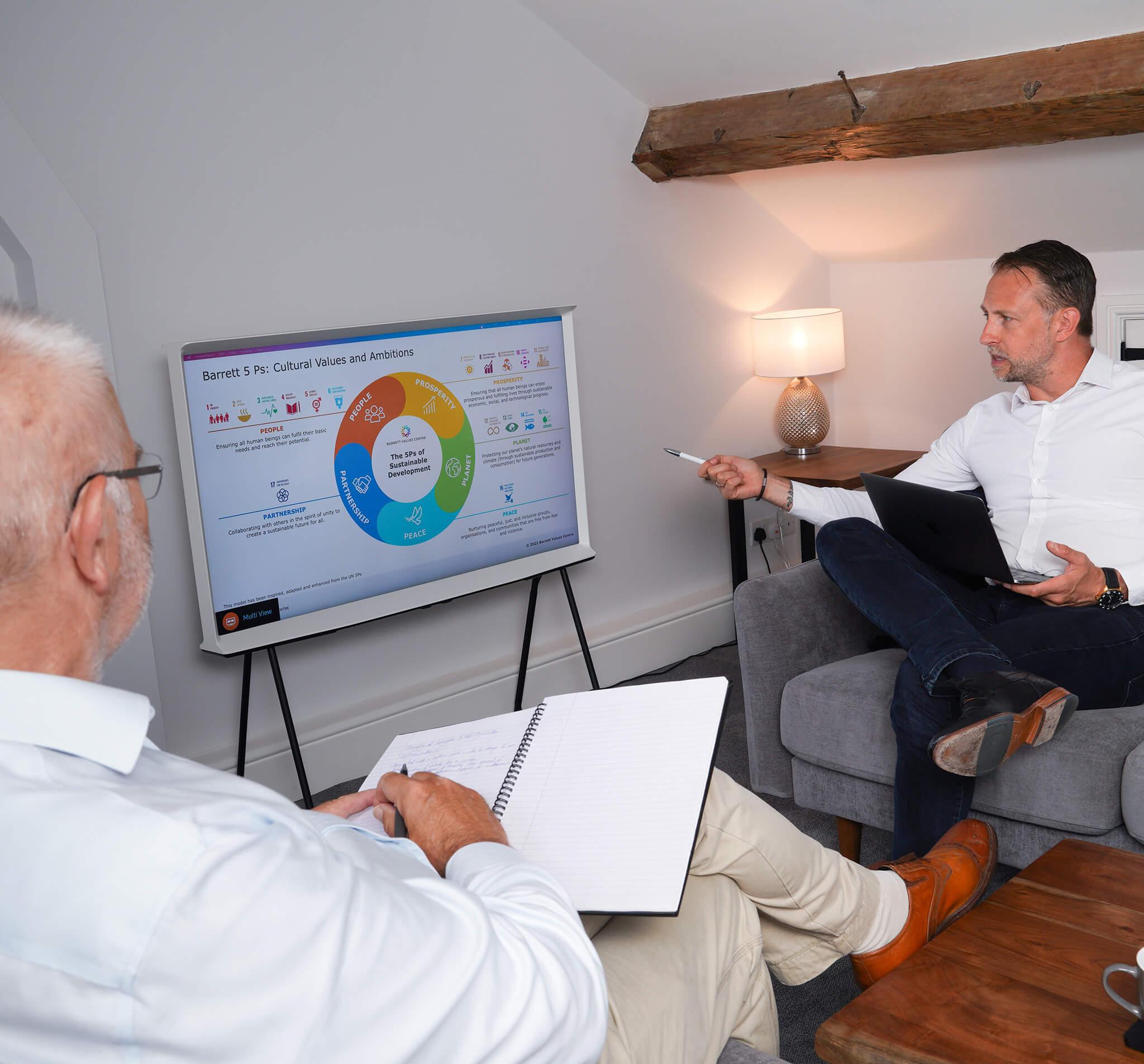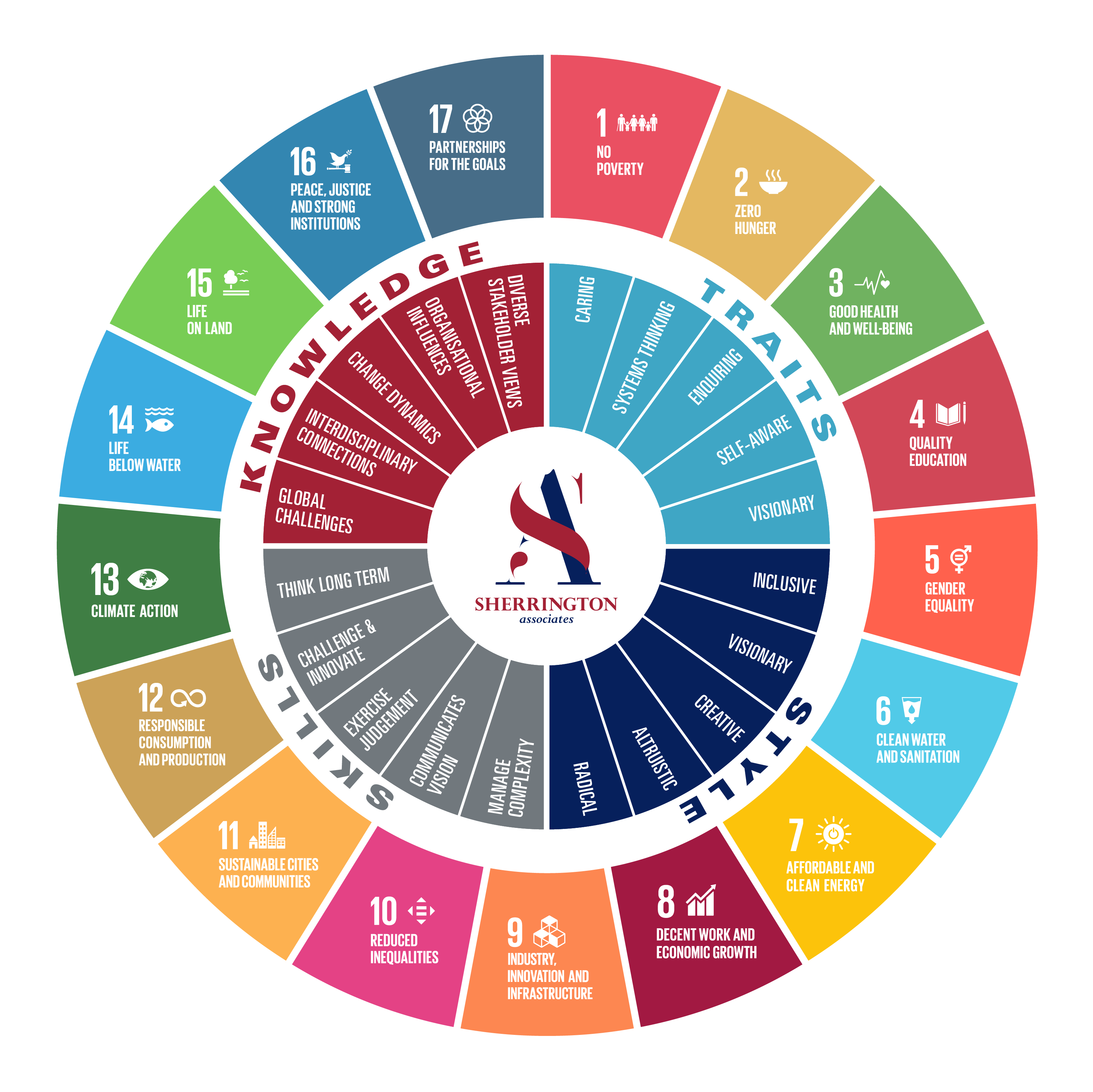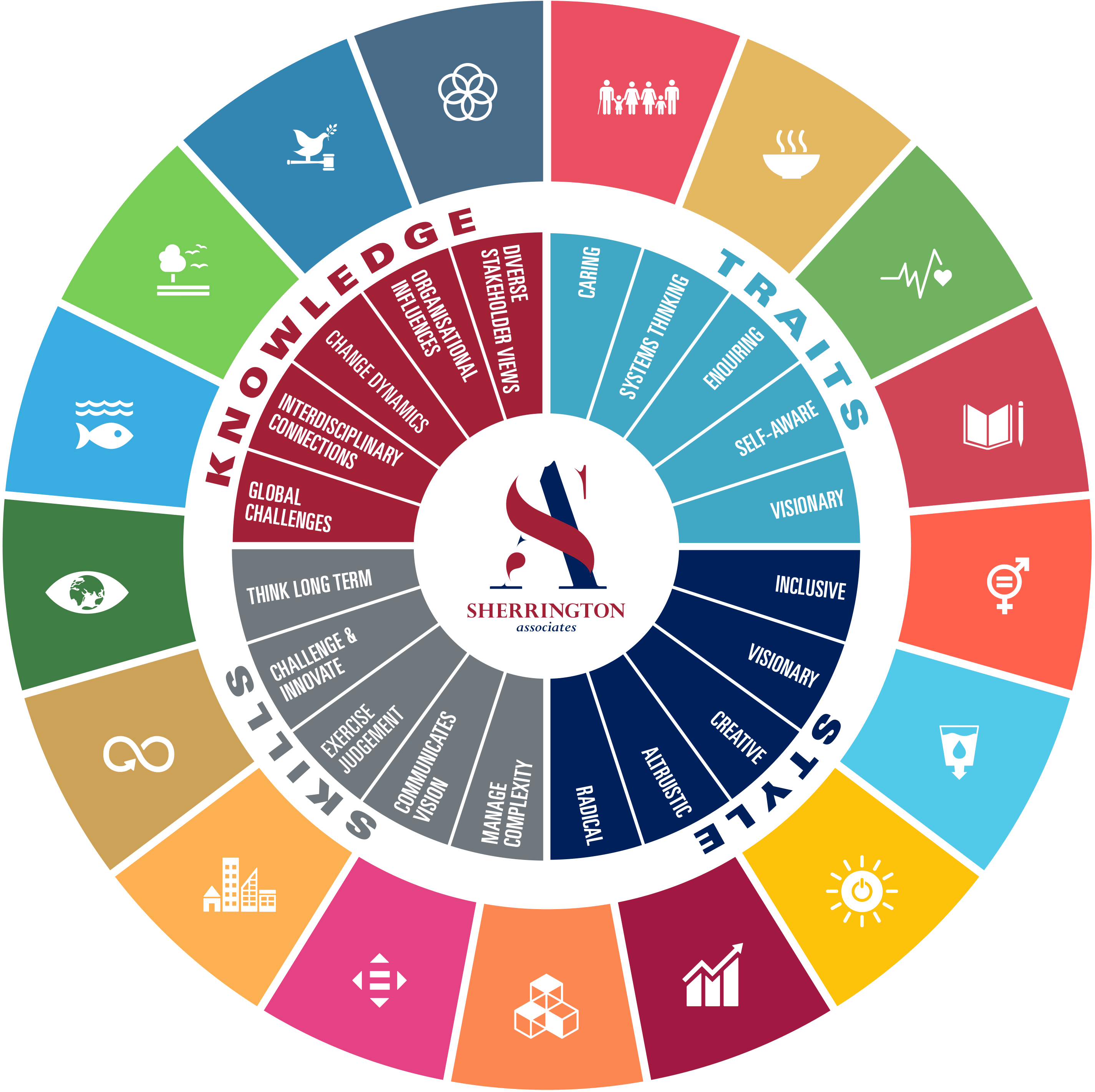


About Us
Sustainable Leadership
In 2016, global management consultancy Bain & Company assessed over 300 corporate companies around the globe including household names like Coca-Cola and Nestle, evaluating the success of corporate sustainability programmes. Bain’s research on sustainability transformation programmes showed that only a poultry 2% actually achieved or exceeded their aims, citing the level of ‘leadership support’ as the greatest factor influencing success or failure. Bain cited the second highest factor as ‘employee engagement and interest’.
(Achieving Breakthrough Results in Sustainability, Bain & Company 2016 report)
This demonstrates a clear case for culture being the primary driver behind sustainability success or failure.
So for those organisations with a genuine desire to shift the dial on sustainability and achieve real and meaningful impact, how do they achieve the level of leadership support and wider colleague engagement necessary for success?
It starts with measurement…
Sherrington are certified users of Barrett Values Centre tools, using them to support clients to embed a culture of sustainability. The Barrett ‘Culture Sustainability Report’ provides a clear lens into how cultural values can support or hinder sustainability ambitions, by understanding how the values of your people and leaders align with to the United Nations 5 P’s – People, Prosperity, Partnership, Planet and Peace.
The report provides us with a clear picture of the current values and culture, so we can then introduce leadership coaching to support leaders to understand how their values impact culture and in turn organisational success when it comes to sustainability.
Where senior-level recruitment needs are identified, we provide targeted executive search, recruiting candidates with a clear understanding of the cultural requirements required by the business.


Over several decades of recruiting senior leaders and managers, we’ve developed a deep understanding of the qualities that make a great leader, but we also know that in a VUCA world, the requirements of leadership are changing.
Now more than ever, organisations need inspirational, future-focused leaders who can foster engagement around a meaningful purpose in their teams, build resilience to future threats and capitalise on new opportunities emerging from the low carbon economy and the rapidly evolving commercial landscape.
To assess ‘Sustainable Leadership’ both as part of wider culture change programmes and within retained executive search assignments, Sherrington have developed an assessment framework, using the Cambridge University of Sustainability Leadership’s definition of Sustainability Leadership:
What makes a sustainable leader?
A sustainability leader is someone who inspires and supports action towards a better world.
Dr Wayne Visser & Dame Polly Courtice, Cambridge Institute for Sustainable Leadership
According to the Cambridge Institute for Sustainable Leadership, a leader's propensity for aligning sustainability to business strategy and affecting meaningful change, directly relates to their strengths in four main areas. When recruiting senior managers and directors for our clients, we assess candidates' strengths in these areas:

Knowledge Leaders need sufficient knowledge of sustainability to translate it into successful business strategy. Knowledge of emerging global challenges and how they affect the organisation, of organisational influences and impacts, of interdisciplinary connectedness and of change dynamics and options are all essential ingredients for sustainable leadership.
Traits Sustainable leaders embody enduring traits and personal characteristics that support actions linked to sustainable leadership. Being caring and morally-driven, being a systems-thinker with an innately enquiring and curious mind, being self-aware and empathetic and having the courage and vision to inspire others, are all essential traits for sustainable leadership.
Styles Different styles of leadership determine the leaders’ approach to tackling change. Sustainable leaders use their leadership style to motivate and inspire others to get behind the strategy. Inclusive leadership achieves engagement through dialogue and consensus, encouraging partnerships through participation. Sustainable leaders are as inclusive as they are visionary and radical, whilst being bold enough to act on well-founded creativity.
Skills The skills required for sustainable leadership are hard to find. Managing ever-increasing complexity, being able to communicate a compelling vision and inspire support, being able to exercise judgement when making difficult decisions, having the courage to challenge and innovate and being able to think long-term are all essential skills of the sustainable leader.
Being able to identify candidates’ strengths and weaknesses in each of these key areas, means we can support our clients to select the best candidate to support their sustainability journey, whilst highlighting key areas for development, once the candidate is in post.
Sherrington always delivers. They take the time to really understand us and that’s what makes the difference.
John Ball – Managing Director, Kolina

